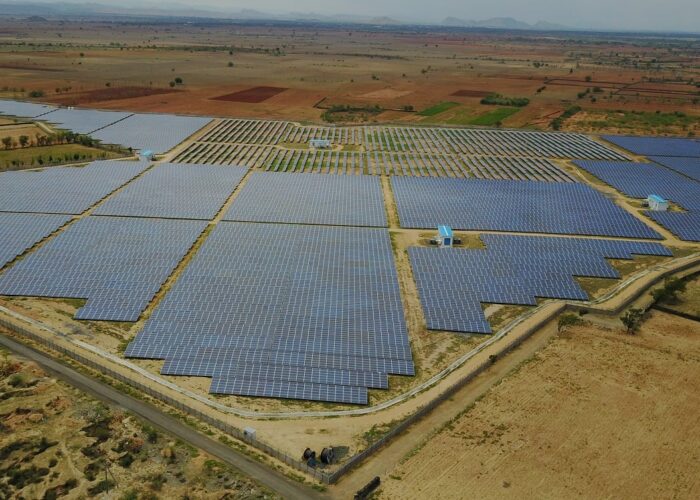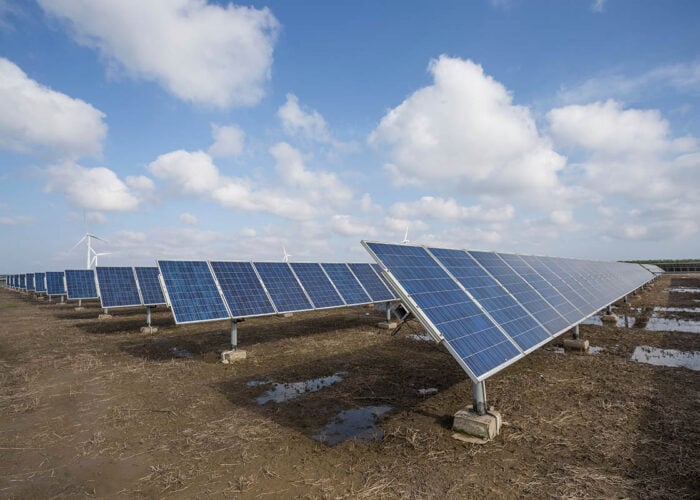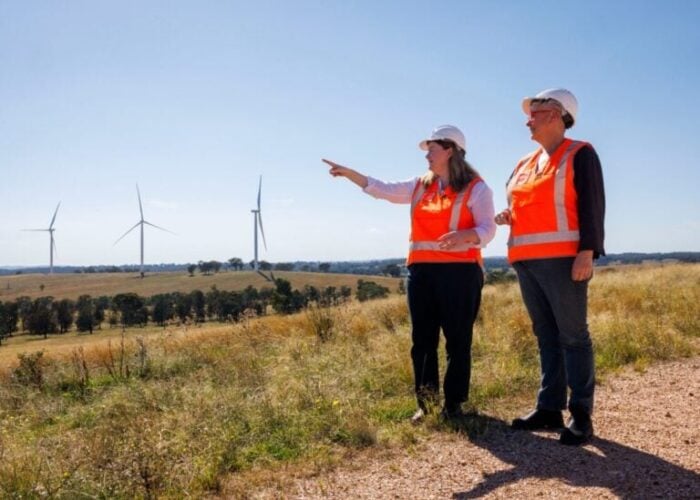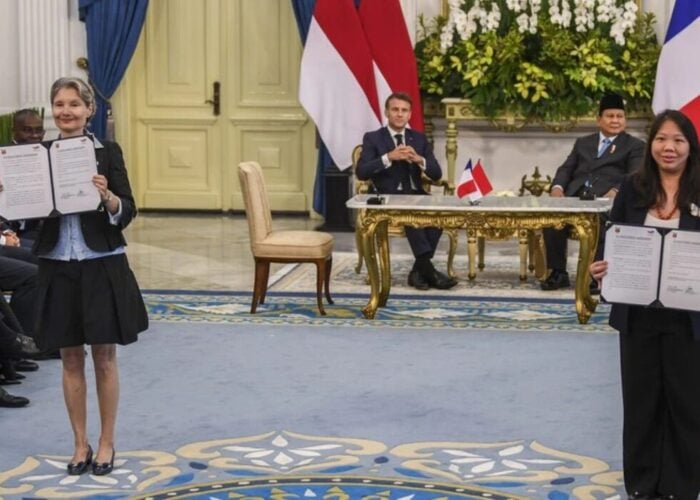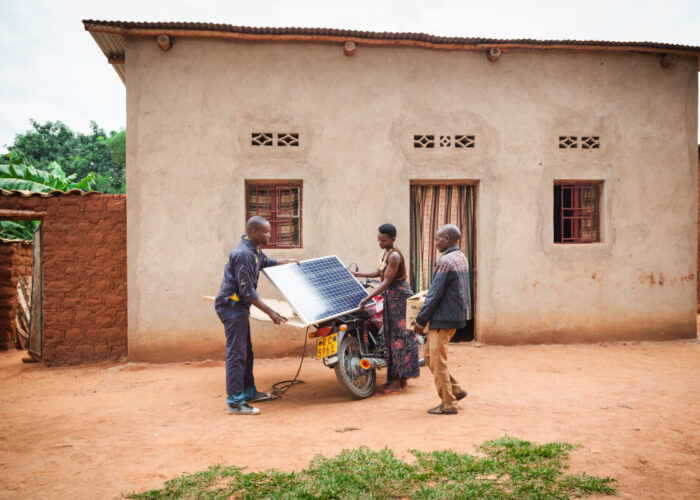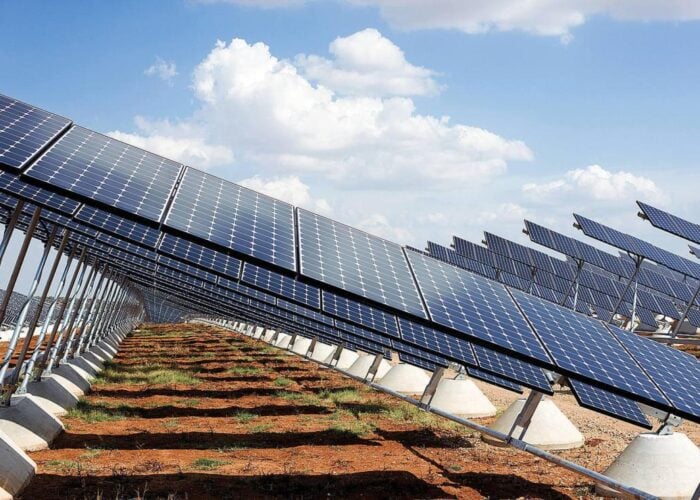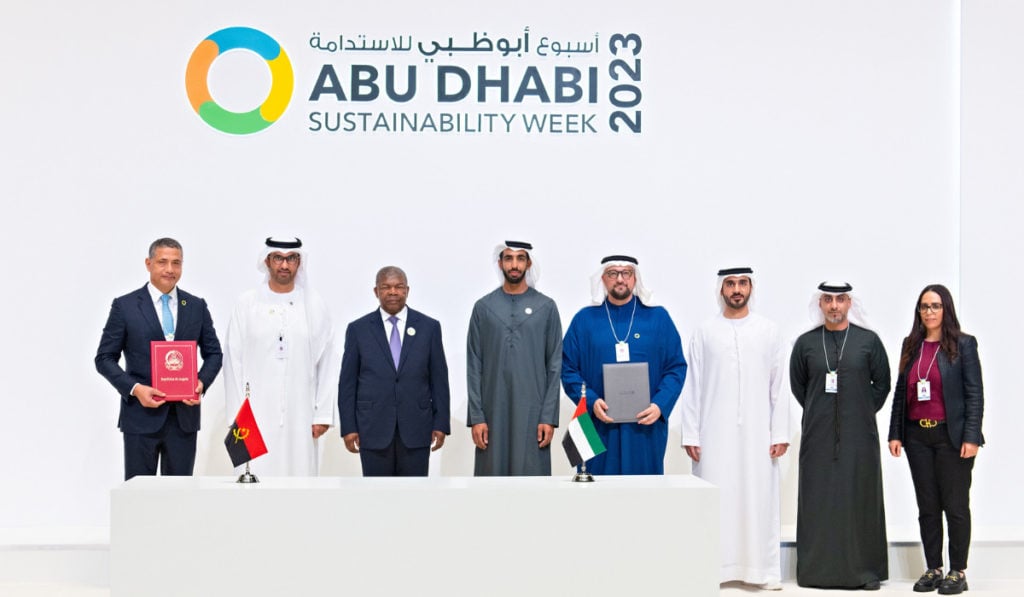
UAE-owned renewables company Masdar has announced its plan to further develop renewable energy projects in Angola and Uganda at Abu Dhabi Sustainability Week (ADSW) 2023.
According to Masdar, it signed an agreement with Angola’s energy and water ministry to develop renewable energy projects with a total capacity of 2GW. These projects can “improve production capacity and access to electricity by the Angolan people, as well we the creation of jobs”.
Unlock unlimited access for 12 whole months of distinctive global analysis
Photovoltaics International is now included.
- Regular insight and analysis of the industry’s biggest developments
- In-depth interviews with the industry’s leading figures
- Unlimited digital access to the PV Tech Power journal catalogue
- Unlimited digital access to the Photovoltaics International journal catalogue
- Access to more than 1,000 technical papers
- Discounts on Solar Media’s portfolio of events, in-person and virtual
“With the new agreement between the government of Angola and Masdar, another step towards a clean and affordable energy transition has been achieved. We look forward to tightening the ties between two countries toward development and partnership,” said Joao Baptista Borges, minister of energy and water of the Republic of Angola.
Masdar will also develop greenfield renewable projects in Uganda with a total installed capacity of 1GW.
Uganda’s minister of energy and mineral development, Ruth Nankabirwa Ssentamu, said that the projects would go a long way to contribute to the country’s universal access and energy transition goals.
Masdar CEO Mohamed Jameel Al Ramahi added, “With Africa’s massive projected development and growth and low current clean energy penetration levels, we see enormous potential for the renewable energy sector across the continent. The agreements we have signed at Abu Dhabi Sustainability Week will support these nations’ clean energy goals.”
He also added that as part of Masdar’s new shareholding structure launched last December, the company aimed to deliver 100GW of clean energy worldwide by 2030.
Meanwhile, Masdar signed a memorandum of understanding (MOU) and a joint development agreement with Zambia state-owned utility Zesco to develop 2GW solar PV in the African country last week.
The deployment of the projects will be done in several phases, with the first comprising 500MW of large-scale solar PV. The plants will bring a US$2 billion capital injection to the country, according to the president of Zambia, Hakainde Hichilema.
The 2GW pipeline of solar PV will contribute to diversifying Zesco’s energy generation portfolio and reduce the company’s reliance on hydropower generation, said the utility.
Currently, less than half of the Sub-Saharan African population has access to electricity, according to the International Renewable Energy Agency (IRENA). At the same time, the continent also only generates 20% of its electricity from renewable sources.

